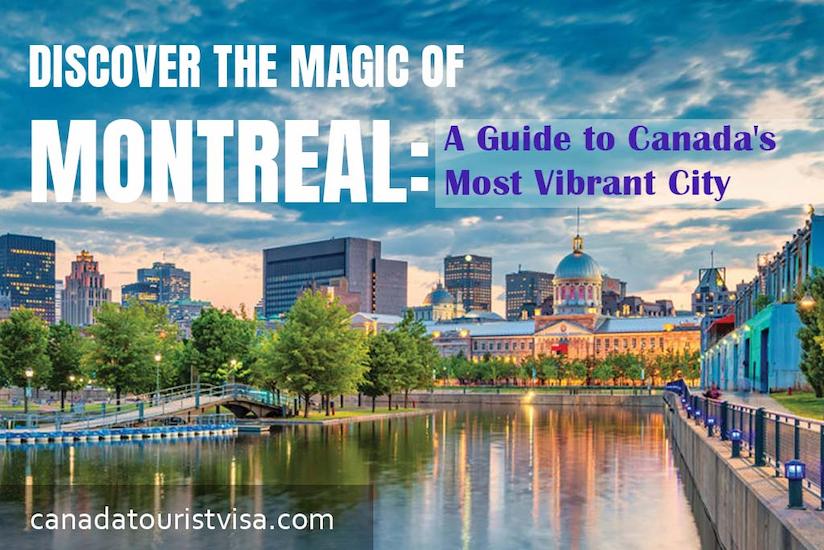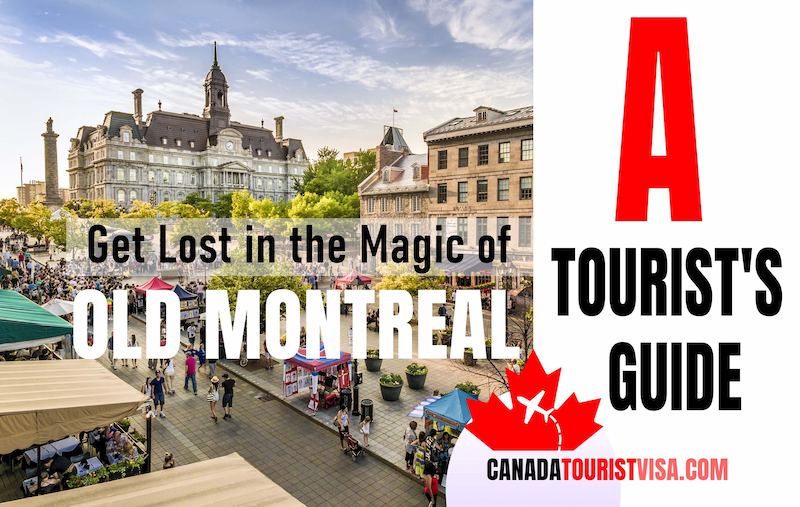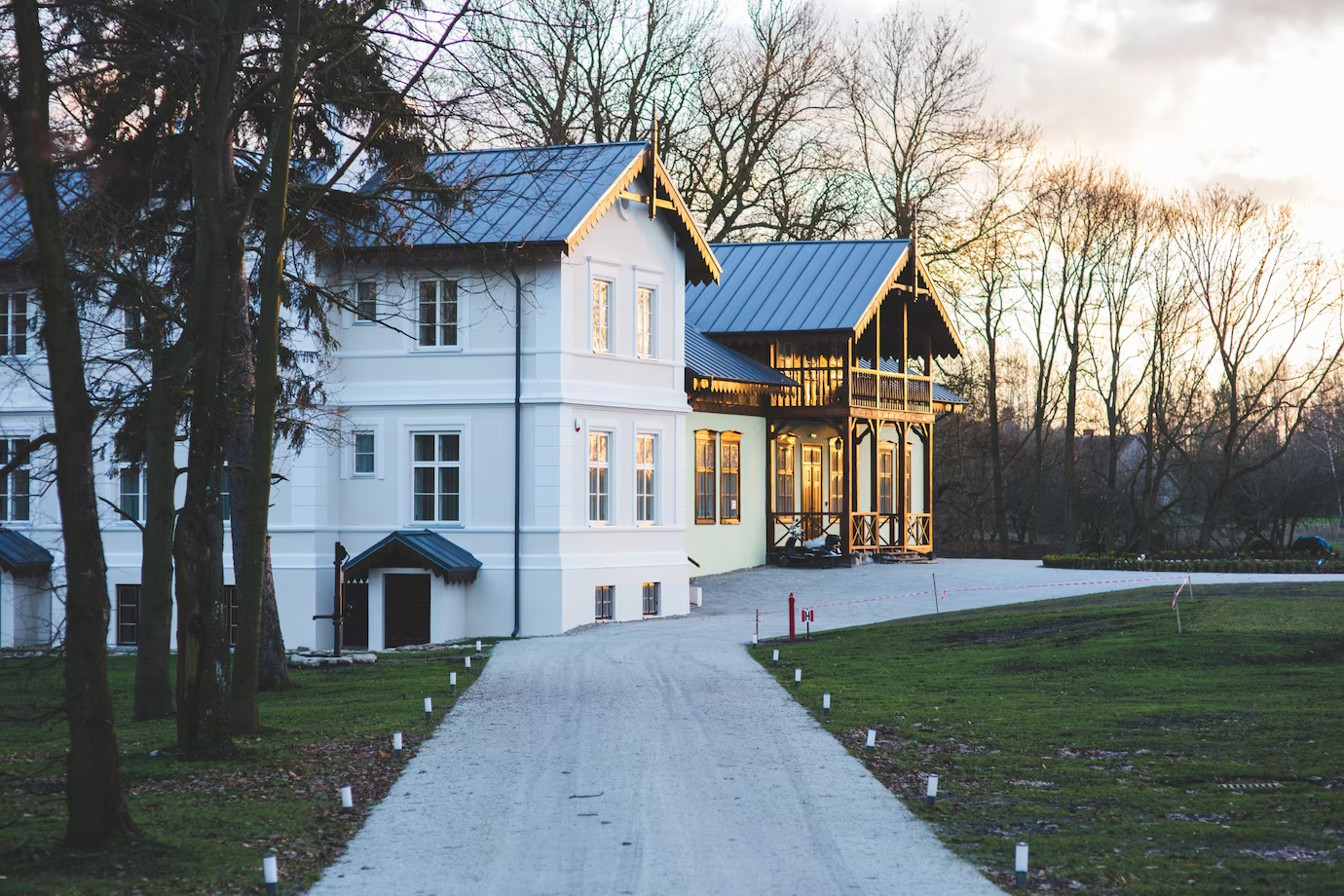As you wander through the streets of Montreal, you can feel the city’s history and culture emanating from every corner. But beyond the well-known tourist spots lies a network of unique neighborhoods waiting to be discovered.
From the colorful murals of the Plateau-Mont-Royal to the winding alleyways of Vieux-Montréal, each neighborhood has its own distinct character and charm. But there’s something else lurking beneath the surface of these streets, something that makes Montreal truly magical.
As you explore each neighborhood, you’ll start to notice a subtle energy, a feeling of anticipation that draws you further and further into the heart of the city. It’s as if each neighborhood holds a secret, waiting to be uncovered.
Perhaps it’s the haunting melodies of a street musician in the Mile End or the mouth-watering scent of fresh bagels wafting from a local bakery in Little Italy. Maybe it’s the whispered stories of the city’s past that seem to linger in the air around the historic buildings of Griffintown.
Whatever it is, you’ll find yourself wanting to know more, wanting to uncover the hidden depths of Montreal’s neighborhoods. And as you do, you’ll discover a city that is more than just a collection of landmarks and attractions. It’s a place where history, culture, and magic come together to create something truly special. So come and explore the unique neighborhoods of Montreal, and let the city cast its spell on you.

Welcome To Montreal
Montreal is a vibrant and cosmopolitan city located in the province of Quebec, Canada. It is a popular destination for tourists from around the world, known for its unique blend of French and English cultures, rich history, and stunning architecture.
Old Montreal is a must-visit for tourists, with its charming cobblestone streets, old architecture, and landmarks like the Notre-Dame Basilica. The city’s many museums and art galleries, such as the Montreal Museum of Fine Arts and the Montreal Science Centre, offer a glimpse into the city’s rich cultural heritage.
Montreal is also renowned for its food scene, with a diverse range of culinary offerings that reflect the city’s multicultural population. From classic French cuisine to Montreal-style bagels, smoked meat sandwiches, and poutine, the city’s food scene is sure to please any palate.
Nature lovers will appreciate Montreal’s many parks, including Mount Royal Park and the Botanical Garden, which offer stunning views of the city and a peaceful oasis in the midst of urban life.
The city also hosts many festivals throughout the year, including the Montreal Jazz Festival, the Just for Laughs Festival, and the Montreal International Fireworks Competition, which draw visitors from all over the world.
Overall, Montreal is a vibrant and exciting destination that offers something for everyone, whether you’re interested in history, culture, food, or nature.
Top 30 Places To Visit In Montreal
Below, I explore in depth the top 30 places to visit in Montreal:
- Old Montreal
- Notre-Dame Basilica
- Mount Royal Park
- Plateau-Mont-Royal
- Montreal Museum of Fine Arts
- Botanical Garden
- Jean-Talon Market
- Montreal Biodome
- La Ronde Amusement Park
- Olympic Park
- Pointe-à-Callière Museum
- Saint Joseph’s Oratory of Mount Royal
- Montreal Science Centre
- Sainte-Catherine Street
- McGill University
- Place des Arts
- Montreal Insectarium
- Lachine Canal National Historic Site
- Atwater Market
- Montreal Casino
- Parc Jean-Drapeau
- Montreal Holocaust Museum
- Mont-Royal Avenue
- Chinatown
- Mile End
- Quartier Latin
- Place Ville Marie
- Museum of Contemporary Art
- Redpath Museum
- Musée d’art contemporain de Montréal
Of course, this is just a small selection of the many places to visit in Montreal. The city has a rich and diverse cultural scene, with something to offer for every taste and interest
Montreal is a vibrant city with many attractions, and the best place to visit can vary depending on personal preferences. However, here are some top places that are worth considering:
- Old Montreal: This historic neighborhood is a must-visit for its charming cobblestone streets, old architecture, and landmarks like the Notre-Dame Basilica.
- Mount Royal Park: Located in the heart of the city, this urban park offers stunning views of Montreal and is an ideal place for a picnic or a hike.
- Plateau-Mont-Royal: A trendy and artistic neighborhood with a lively atmosphere, colorful street art, and a wide range of restaurants and shops.
- Montreal Museum of Fine Arts: One of Canada’s most prestigious art museums, with a vast collection of works from around the world.
- Botanical Garden: A peaceful oasis in the city, with 75 hectares of gardens and greenhouses showcasing over 22,000 plant species.
- Jean-Talon Market: A bustling farmer’s market in Little Italy, offering fresh produce, artisanal products, and a taste of Montreal’s diverse food scene.
These are just a few examples, but there are many more places to explore in Montreal, depending on your interests and preferences.

Old Montreal is a charming historic district in the heart of the city, and it’s a must-visit destination for any tourist. With its cobblestone streets, 18th-century buildings, and impressive architecture, Old Montreal is a living testament to the city’s rich cultural heritage. Here are some of the top attractions to explore in Old Montreal:
- Notre-Dame Basilica: This stunning basilica is a true masterpiece of Gothic Revival architecture, with intricate carvings, stained-glass windows, and a massive pipe organ. Visitors can take a guided tour to learn about the church’s history and admire its breathtaking beauty.
- Place Jacques-Cartier: This lively public square is the perfect spot to soak up the atmosphere of Old Montreal. Lined with cafes, restaurants, and street performers, it’s a great place to grab a bite to eat, do some shopping, or people-watch.
- Pointe-à-Callière Museum: This impressive museum is dedicated to the history and archaeology of Montreal, and it’s built on the site of the city’s original settlement. Visitors can explore the ruins of old buildings, see artifacts from the city’s past, and learn about Montreal’s rich cultural heritage.
- Old Port of Montreal: This historic port area is a great place to take a stroll and enjoy the beautiful views of the Saint Lawrence River. With its restored warehouses, boardwalks, and outdoor activities like zip-lining and boat tours, the Old Port is a fun and unique destination.
- Bonsecours Market: This elegant market building is one of the oldest in North America, and it’s a great place to browse for souvenirs and local crafts. With its vaulted ceilings, impressive architecture, and great views of the waterfront, it’s a must-visit destination in Old Montreal.
Whether you’re interested in history, architecture, or just soaking up the charm of this historic district, Old Montreal is a great place to explore for tourists. With so much to see and do, it’s sure to be a highlight of your visit to Montreal.

Weather – Most Popular Time To Visit Montreal
Montreal experiences a variety of weather conditions throughout the year, with distinct seasons that offer different opportunities for tourists.
Summer (June to August) is the most popular time to visit Montreal, as the weather is warm and sunny, with average temperatures ranging from 20°C (68°F) to 27°C (81°F). This is a great time to explore the city’s many outdoor attractions, including parks, festivals, and outdoor dining.
Fall (September to November) is a beautiful time to visit Montreal, as the city’s trees turn brilliant shades of red and gold. Temperatures begin to cool, with averages ranging from 5°C (41°F) to 20°C (68°F), making it a great time to enjoy the city’s museums and indoor attractions.
Winter (December to February) in Montreal is cold and snowy, with average temperatures ranging from -10°C (14°F) to -5°C (23°F). Despite the cold weather, Montreal is a popular destination for winter sports enthusiasts, with opportunities for skiing, ice skating, and snowshoeing.
Spring (March to May) in Montreal is chilly and rainy, with average temperatures ranging from 0°C (32°F) to 15°C (59°F). However, this is a great time to visit the city’s many gardens and green spaces, as the flowers begin to bloom and the trees turn green.
In summary, Montreal experiences a variety of weather conditions throughout the year, with distinct seasons that offer different opportunities for tourists. It’s important to pack accordingly and plan your activities based on the weather conditions during your visit.

Transportation For Tourist Montreal
Montreal has an extensive public transportation system that is convenient and affordable for tourists. Here are some transportation options to consider:
- Metro: The Montreal Metro is a fast and efficient way to travel around the city, with 68 stations serving four different lines. The metro runs from 5:30 am to 1 am on weekdays, and from 6 am to 1 am on weekends. Single fares start at $3.50, or you can purchase a 24-hour pass for $10.00.
- Bus: The Société de transport de Montréal (STM) operates over 200 bus routes throughout the city. Buses run from 5 am to 1 am, and single fares start at $3.50. You can also purchase a 24-hour pass for $10.00.
- Bixi: Bixi is a bike-sharing program that operates throughout the city, with over 6,000 bikes available at 540 stations. You can purchase a 24-hour pass for $5.00 or a three-day pass for $15.00.
- Taxis: Taxis are readily available throughout the city, and fares start at $3.45 plus $1.70 per kilometer.
- Uber: Uber also operates in Montreal, and fares are typically lower than traditional taxis.
- Walking: Montreal is a very walkable city, with many attractions within easy walking distance of each other. Walking is a great way to explore the city and take in its unique architecture and charm.
Overall, Montreal’s public transportation system is reliable and easy to use, with many options for getting around the city.
Hotels in Montreal
Montreal offers a wide range of hotels to suit every budget and taste. Here are some examples of the different types of hotels you can find in Montreal:
- Luxury Hotels: These hotels offer top-notch amenities, excellent service, and a sophisticated ambiance. Examples include Ritz-Carlton Montreal, Hotel Birks Montreal, Four Seasons Hotel Montreal, and Fairmont The Queen Elizabeth.
- Mid-Range Hotels: These hotels offer comfortable rooms and standard amenities at a more affordable price point. Examples include Hotel 10, Le Meridien Versailles, and Hotel Le Cantlie Suites.
- Budget-Friendly Hotels: These hotels offer basic accommodations at a low price point. Examples include Hotel Bonaventure Montreal, Hotel Espresso Montreal Downtown, and Hotel Travelodge Montreal Centre.
- Hostels: These are budget-friendly options for travelers who are looking for a social atmosphere and shared accommodations. Examples include M Montreal Hostel, HI Montreal Hostel, and Auberge Saint-Paul.
- Short-Term Rentals: These include apartments, condos, and houses that can be rented for short periods of time through services like Airbnb or VRBO. These options offer more space and privacy than a hotel room.
Overall, Montreal has a diverse range of accommodations to choose from, catering to every budget and preference.
Luxury Hotels
Montreal has many luxury hotels that offer world-class amenities, excellent service, and a sophisticated ambiance. Here are some of the top luxury hotels in Montreal:
- Ritz-Carlton Montreal: This iconic hotel has been a symbol of luxury and elegance since 1912, offering luxurious rooms and suites, a rooftop pool, a fitness center, a spa, and a renowned restaurant.
- Hotel Birks Montreal: Located in the heart of downtown, this hotel is housed in a historic building and offers beautifully designed rooms and suites, a rooftop terrace, a fitness center, and a restaurant featuring French cuisine.
- Four Seasons Hotel Montreal: This sleek and contemporary hotel is located in the Golden Square Mile neighborhood, offering luxurious rooms and suites, a spa, a fitness center, a rooftop terrace, and a restaurant featuring locally sourced cuisine.
- The Ritz-Carlton Residences, Montreal: These upscale serviced apartments offer the ultimate in luxury living, with spacious suites, personalized service, and access to the hotel’s amenities, including a spa, a fitness center, and a restaurant.
- Fairmont The Queen Elizabeth: This iconic hotel has hosted numerous celebrities and heads of state since its opening in 1958. It offers luxurious rooms and suites, a spa, a fitness center, and a rooftop terrace with stunning views of the city.
- Sofitel Montreal Golden Mile: This stylish hotel is located in the heart of downtown and features elegant rooms and suites, a spa, a fitness center, and a restaurant serving French-inspired cuisine.
These are just a few examples of the many luxury hotels in Montreal. The city has a thriving hospitality industry, with many world-class hotels offering exceptional service and amenities.
Shopping in Montreal
Montreal is a popular shopping destination, with a wide range of options for all budgets and tastes. Here are some of the best places to go shopping in Montreal:
- Saint Catherine Street: This is one of the city’s main shopping streets, with a mix of high-end stores, department stores, and boutiques.
- Eaton Centre: This large indoor shopping center on Saint Catherine Street is home to over 100 stores, including major retailers like Hudson’s Bay, Zara, and H&M.
- Old Montreal: This historic neighborhood is home to many unique boutiques, artisanal shops, and art galleries, offering a more upscale and trendy shopping experience.
- Le Plateau-Mont-Royal: This neighborhood is known for its hip and trendy boutiques, independent designers, and vintage shops, with many options for clothing, accessories, and home decor.
- Marché Jean-Talon: This large outdoor market in the Little Italy neighborhood offers fresh produce, meats, cheeses, and other specialty foods from local farmers and vendors.
- Atwater Market: This market in the Saint-Henri neighborhood is another popular option for fresh produce, meats, cheeses, and other specialty foods.
- Underground City: This extensive network of underground malls and tunnels beneath downtown Montreal offers a unique shopping experience, with many stores and restaurants accessible without having to go outside.
- Quartier DIX30: This outdoor lifestyle center located in Brossard, just south of Montreal, is home to over 300 stores and restaurants, including major retailers like Simons, Apple, and Sephora.
- Rue Sherbrooke: This elegant street in the Golden Square Mile neighborhood is known for its upscale boutiques, art galleries, and high-end fashion brands.
- Place Ville Marie: This iconic tower in downtown Montreal is home to a shopping center with many high-end brands, as well as restaurants and cafes.
- Les Cours Mont-Royal: This upscale shopping center is located in a historic building in downtown Montreal, and is home to luxury brands like Louis Vuitton, Tiffany & Co., and Prada.
- Westmount Square: This shopping center in the affluent Westmount neighborhood is home to many high-end boutiques and specialty stores.
- Complexe Desjardins: This large shopping center in downtown Montreal is home to many stores, restaurants, and a movie theater.
- Le Faubourg Ste-Catherine: This shopping center on Saint Catherine Street is home to many stores and restaurants, including a large food court.
- Rue St-Denis: This trendy street in the Plateau-Mont-Royal neighborhood is home to many independent boutiques, record stores, and vintage shops.
Overall, Montreal offers a diverse and exciting shopping scene, with something for everyone, from high-end luxury brands fashion boutiques to outdoor markets and independent shops.
FAQ
Is it expensive to live in Montreal?
The cost of living in Montreal is generally lower than other major Canadian cities like Toronto and Vancouver, but it can still be considered relatively expensive compared to other cities in Quebec. The cost of living can vary depending on factors such as housing, transportation, food, and entertainment.
Housing costs in Montreal can be a significant expense, especially if you are looking for a centrally located apartment in popular neighborhoods. The cost of transportation can also add up, with public transit passes costing around $86 per month.
On the other hand, Montreal has a vibrant food scene with many affordable options, including food markets and street food. Entertainment options are also varied and can be found at different price points, with many free events and attractions throughout the city.
Overall, the cost of living in Montreal is comparable to other major cities in North America, but it is important to budget accordingly based on your lifestyle and priorities.
How is Montreal different from Canada?
Montreal is a city in Canada, so it is a part of the country and shares many similarities with other Canadian cities. However, there are some differences that set Montreal apart from other cities in Canada. Here are a few examples:
- Language: Montreal is unique in Canada because it is predominantly French-speaking, with French being the official language of the province of Quebec. This means that many signs, menus, and other forms of communication are in French, and it is common for residents to speak French as their first language.
- Culture: Montreal has a distinct cultural identity that blends French, English, and Indigenous influences. This is reflected in the city’s arts scene, music, food, and festivals, which include the Montreal Jazz Festival, Just for Laughs Comedy Festival, and Montreal International Fireworks Competition.
- Architecture: Montreal has a unique blend of old and new architecture, with historic buildings dating back to the 17th century alongside modern skyscrapers. The city’s Old Port and Old Montreal neighborhoods are particularly known for their historic charm.
- Sports: Montreal has a strong sports culture, with passionate fans supporting the city’s professional sports teams, including the Montreal Canadiens (NHL), Montreal Impact (MLS), and Montreal Alouettes (CFL).
- Climate: Montreal has a distinct four-season climate with cold winters and warm summers, which can differ from other parts of Canada. The city’s weather can be influenced by its location near the St. Lawrence River and the Great Lakes region.
Overall, while Montreal is a part of Canada, its unique language, culture, architecture, sports, and climate make it a distinctive city within the country.
What is a good salary in Montreal?
The answer to this question depends on various factors, such as the cost of living, individual lifestyle, and personal financial goals. However, we can provide some general guidelines on what can be considered a good salary in Montreal.
According to Statistics Canada, the average salary in Montreal is around $54,000 per year. However, this number can vary significantly depending on the industry and job type. For example, salaries in the tech industry tend to be higher than those in retail or hospitality.
In terms of cost of living, Montreal is generally considered to be an affordable city compared to other major Canadian cities like Toronto and Vancouver. However, housing costs can be a significant expense, especially in popular neighborhoods or downtown areas.
A good salary in Montreal is generally considered to be around $75,000 to $100,000 per year. This would allow individuals to comfortably cover their basic living expenses, have some disposable income for entertainment and travel, and make progress towards their financial goals such as saving for retirement or buying a home.
It is important to note that this is a general guideline, and what constitutes a good salary can vary greatly depending on personal circumstances and individual financial goals.
Whats is The Best Jobs For Students In Montreal?
Montreal offers a variety of job opportunities for students who are looking to gain work experience and earn some extra income while studying. Here are some of the best jobs in Montreal for students:
- Customer service representative: Many companies in Montreal are looking for customer service representatives who can assist customers via phone, email, or chat. This job requires good communication and problem-solving skills, and can be a great opportunity for students who are looking to develop their customer service skills.
- Retail sales associate: Retail stores in Montreal are always looking for sales associates who can help customers find what they are looking for and provide excellent customer service. This job can be ideal for students who are outgoing, friendly, and enjoy working with people.
- Food service worker: Montreal has a vibrant food scene, and there are plenty of opportunities for students to work in restaurants, cafes, and food trucks. These jobs can involve tasks such as taking orders, preparing food, and serving customers.
- Tutor: If you are a student who excels in a particular subject, you can consider working as a tutor to help other students improve their grades. Many tutoring services in Montreal are looking for students who can provide one-on-one or group tutoring sessions.
- Delivery driver: With the rise of online shopping, many companies in Montreal are looking for delivery drivers who can deliver packages to customers. This job requires a driver’s license and a reliable vehicle, and can be a great opportunity for students who enjoy driving and want to earn some extra income.
- Event staff: Montreal is known for its festivals and events, and there are many opportunities for students to work as event staff. This job can involve tasks such as setting up booths, managing crowds, and providing customer service.
These are just a few examples of the many job opportunities available for students in Montreal. To find the best job for you, it’s recommended to explore job boards, career fairs, and networking events, and to reach out to potential employers directly.
How Many Universities in Montreal?
There are several universities located in Montreal, Quebec, Canada. In total, there are 12 universities in Montreal that offer a wide range of undergraduate and graduate programs in various fields, including arts, science, engineering, business, health sciences, education, and law. These universities include:
- McGill University
- Université de Montréal
- Concordia University
- École de technologie supérieure (ETS)
- Université du Québec à Montréal (UQAM)
- HEC Montréal
- Université de Sherbrooke – Campus de Longueuil
- Université Laval – Campus de Montréal
- TÉLUQ University
- Collège militaire royal de Saint-Jean
- Institut national de la recherche scientifique (INRS)
- Université de Montréal – Campus de Laval
It’s important to note that each institution has its unique strengths and areas of focus, so it’s recommended to research each university carefully to determine which one best fits your academic and career goals. Send your feedback for any changes in this list.
There are also several colleges and technical institutes located in Montreal and its surrounding areas that offer vocational training and diploma programs in various fields, including:
- Dawson College
- Vanier College
- LaSalle College
- Champlain College Saint-Lambert
- Collège André-Grasset
- Collège de Maisonneuve
- Collège Montmorency
- Cégep de Saint-Laurent
- Cégep de Rosemont
- John Abbott College
- Marianopolis College
These are just a few examples of the many academic institutions located in Montreal and its surrounding areas. Send your feedback if you want to any changes in this list.
What is the History of Montreal?
Montreal is a city located in the province of Quebec, Canada, with a rich history dating back over 8,000 years.
Before the arrival of European explorers, the area now known as Montreal was home to various Indigenous peoples, including the Mohawk, Algonquin, and Huron-Wendat. The French explorer Jacques Cartier arrived in the area in 1535 and claimed it for France.
The city of Montreal was founded in 1642 by French colonists led by Paul Chomedey de Maisonneuve and Jeanne Mance. The city was named after Mount Royal, a prominent hill located in the heart of the city.
Montreal was an important fur trading center and grew into a major commercial hub during the 18th and 19th centuries. In 1760, the city was captured by the British during the Seven Years’ War, and it became a British colony. The city grew rapidly during the 19th century as a result of the construction of the Lachine Canal and the expansion of the railway system.
In the late 19th and early 20th centuries, Montreal experienced a period of rapid industrialization and became known as the “City of a Hundred Steeples” due to the large number of churches and religious institutions in the city. The city also became a center of culture and the arts, with the founding of the Montreal Symphony Orchestra, the Montreal Museum of Fine Arts, and the Montreal International Jazz Festival.
In the 1960s, Montreal experienced a period of political and social upheaval known as the Quiet Revolution. During this time, the province of Quebec underwent significant political and social changes, including the rise of the separatist movement, which sought to create an independent Quebec. The city also hosted the 1967 World Expo and the 1976 Summer Olympics, which helped to boost its international profile.
Today, Montreal is a vibrant and multicultural city with a diverse population and a rich cultural heritage. It is known for its festivals, cuisine, architecture, and vibrant arts scene. The city is home to numerous universities, including McGill University and the Université de Montréal, and is a center for research and innovation in fields such as artificial intelligence, biotechnology, and aerospace. read more in Wikipedia Montreal
What Is The Property Rates in Montreal?
The property rates in Montreal, Canada, can vary widely depending on the location, size, and type of property.
According to the Greater Montreal Real Estate Board, the average residential property price in the Greater Montreal area was $432,829 CAD in February 2022, which represents a 19% increase compared to February 2021. The average condominium price in February 2022 was $365,736 CAD, while the average single-family home price was $617,323 CAD.
In terms of location, some of the most expensive areas in Montreal include Westmount, Outremont, and the Golden Square Mile, where the average property prices can range from $1 million CAD to over $4 million CAD. Other neighborhoods such as Plateau-Mont-Royal, Ville-Marie, and Rosemont-La Petite-Patrie have lower average property prices, ranging from around $400,000 CAD to $800,000 CAD.
It’s important to note that these are average prices, and the actual property rates in Montreal can vary widely depending on various factors such as the size, condition, location, and features of the property. It’s recommended to consult with a real estate agent or conduct thorough research before making any property purchases or investments.
Get Free Expert Advice
Our Visa Expert team will guide you through the process of applying for a tourist visa to Canada. submit bellow form.
Your privacy is our first priority if you submit this form it means you agree to our disclaimer, After the submit your details our executive will connect your shortly as soon as possible.














